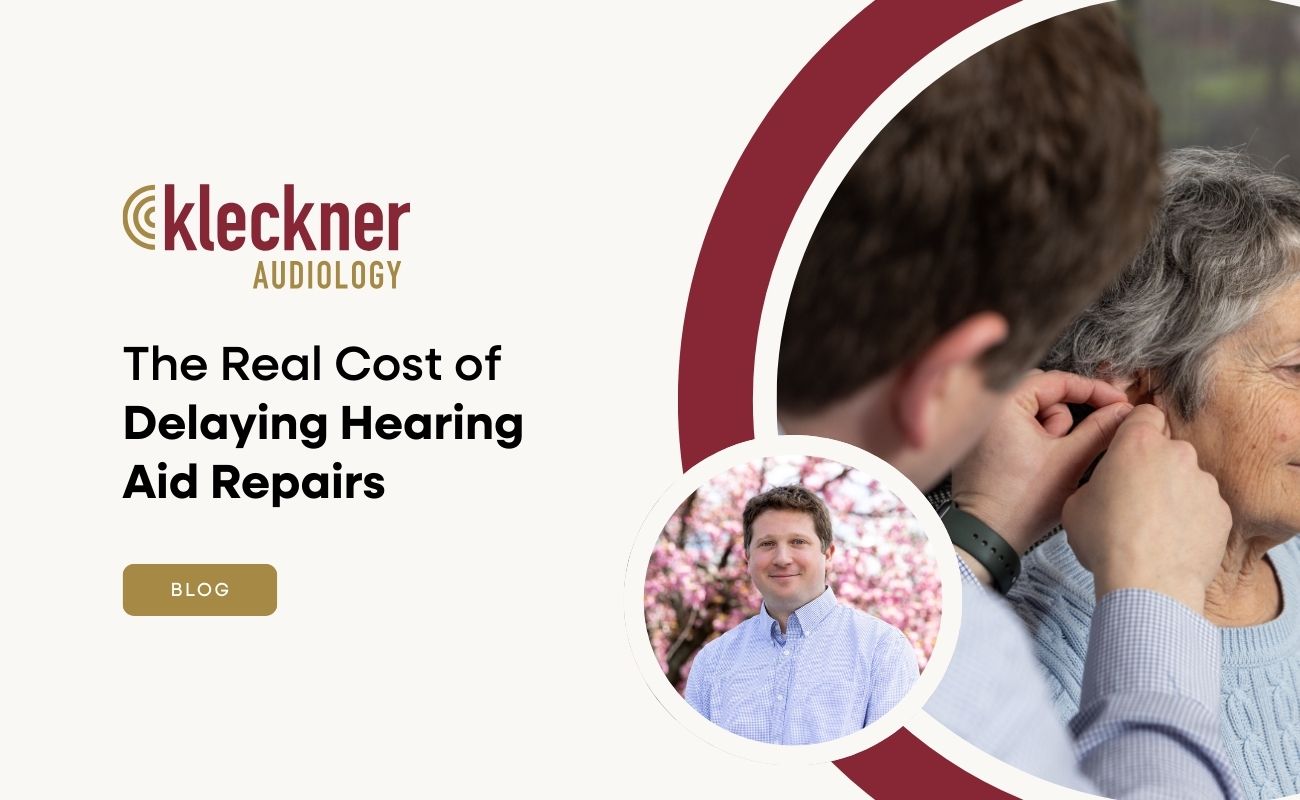The Importance of Regular Hearing Tests: Why You Shouldn't Wait

In this era of incessant auditory stimulation, it is easy to take our ability to perceive intricate sounds for granted. While hearing often seems as effortless as breathing, we must recognize that our sense of hearing is a precious gift that demands our utmost care and attention.
Don't wait until you think you have a hearing problem! Regular hearing checkups are essential for everyone, regardless of age or how well you think you hear. These checkups are vital for your overall health and well-being, offering numerous benefits beyond just detecting hearing loss. They can help protect your cognitive function, improve your social life, and much more. Discover the many reasons why proactive hearing care should be a priority for everyone.
Understanding Hearing Loss
Hearing health is essential for overall well-being, affecting not only our ability to hear but also our balance and spatial awareness. Just like other aspects of our health, our hearing can change over time, often subtly and gradually.
Hearing loss is usually a slow process, developing over years without us noticing the small changes. We often adapt to this decline unconsciously, making slight adjustments like turning up the TV volume or straining to hear in noisy places. However, these adaptations can hide the underlying issue, postponing diagnosis and treatment.
Regular hearing tests are crucial because they can detect these gradual changes early on. Early detection allows for timely intervention, leading to better management of hearing loss and improved quality of life.
Hearing and Brain Health: A Vital Link
Recent research has revealed a strong link between hearing health and cognitive function. Studies from top research institutions have demonstrated that untreated hearing loss is linked to an increased risk of cognitive decline and dementia. This is because the brain, when constantly struggling to interpret muffled or unclear sounds, experiences a type of cognitive overload. This ongoing strain may accelerate cognitive aging and potentially lead to earlier onset of cognitive impairments.
By prioritizing your hearing health through regular checkups and timely interventions, you're not only protecting your ability to hear but also taking proactive steps to safeguard your cognitive function as you age. This connection highlights the importance of considering hearing care as a crucial component of overall brain health, not just an isolated aspect of sensory function.
Hearing Loss Affects Social and Emotional Well-being
Beyond its cognitive implications, hearing plays a fundamental role in our social interactions and emotional well-being. Effective communication is the cornerstone of our relationships, both personal and professional. When hearing loss goes undetected or untreated, it can trigger a series of negative social and emotional consequences.
Many individuals with untreated hearing loss gradually withdraw from social activities. They may avoid noisy environments like restaurants or parties due to difficulty understanding conversations, or they may feel increasingly left out during group interactions. This self-imposed social isolation can lead to feelings of frustration, loneliness, and even depression.
The emotional impact of untreated hearing loss should not be underestimated. The constant effort to follow conversations, the embarrassment of misunderstanding or responding inappropriately, and the feeling of disconnection from loved ones can significantly affect quality of life and mental health.
In the workplace, good hearing is often essential for both performance and safety. Many jobs require clear communication, whether it's interacting with customers, collaborating with colleagues, or responding to important audio cues. Undetected hearing loss can lead to misunderstandings, reduced productivity, and in some cases, safety hazards.
Regular hearing tests can ensure that you're able to perform at your best in your professional life. For those in occupations with high noise exposure, such as construction or manufacturing, regular hearing checks are even more critical to monitor any potential hearing damage and take preventive measures. Additionally, regular hearing tests offer a proactive way to identify and address these issues before they can severely impact your social life and emotional well-being. By detecting and treating hearing loss early, you can maintain your ability to participate fully in social situations, preserve your relationships, and protect your emotional health.
Hearing Tests: A Window into Your Overall Health
Surprisingly, hearing tests can sometimes uncover more than just hearing loss. The ear is a complex organ, and changes in hearing can be indicative of other health issues. For instance, sudden hearing loss can be a sign of cardiovascular problems, while asymmetrical hearing loss might point to neurological concerns. Regular hearing evaluations provide healthcare professionals with a chance to detect these potential warning signs early on.
Many people put off hearing tests because they're unsure of what to expect or fear a diagnosis of hearing loss. However, understanding the process can help alleviate these concerns.
What to Expect at a Hearing Test
At Kleckner Audiology, we offer a comprehensive hearing evaluation process designed to thoroughly assess your hearing health. Our experienced audiologists, including Dr. Peter Kleckner, use state-of-the-art equipment to ensure accurate results. Here's what you can expect during your visit:
- Medical History Review: We begin by discussing your medical history, including any past injuries or medications that might affect your hearing. This helps us understand your unique situation and tailor our approach accordingly.
- Visual Examination (Otoscopy): Using an advanced otoscope, we examine your outer ear and ear canal for any visible issues. We even offer video otoscopy, allowing you to see inside your ears alongside our audiologist.
- Air Conduction Testing: In our soundproof booth, you'll listen to a series of tones at different frequencies and volumes. This helps us determine the softest sounds you can hear, which we plot on an audiogram for a visual representation of your hearing ability.
- Bone Conduction Testing: We use a bone oscillator to send vibrations directly to your inner ear, bypassing the outer and middle ear. This test helps us identify if your hearing loss is due to problems in the inner ear or elsewhere.
- Speech Testing: We conduct both Speech Reception Thresholds (SRTs) and Word Recognition Testing. These tests assess how well you can understand speech at different volumes, which is crucial for effective communication and potential hearing aid use.
- Tympanometry: This test evaluates the condition of your middle ear by measuring eardrum movement. It helps us understand why there might be differences between air and bone conduction thresholds.
- Speech in Noise (SIN) Testing: We also measure your ability to understand speech in noisy environments, which is often a key challenge for those with hearing loss.
Our comprehensive evaluation typically takes about an hour and is entirely painless. After completing the tests, we will discuss the results with you in detail, ensuring you understand your specific type of hearing loss and its implications. Together, we'll decide on the best course of action to address your hearing needs, whether that involves hearing aids or other interventions.
How Often Should You Get Your Hearing Tested?
The frequency of hearing tests can vary depending on age and risk factors. For adults under 50 with no hearing issues, a hearing test every 3-5 years is generally recommended. For those over 50 or with known hearing loss, annual tests are often advised. However, you should get your hearing checked sooner if you notice any changes in your hearing ability.
Certain groups should consider more frequent testing:
- Those exposed to loud noises at work or during leisure activities
- People with a family history of hearing loss
- Individuals taking medications that can affect hearing
- Those with cardiovascular issues or diabetes
Despite the clear benefits, many people still hesitate to get regular hearing tests. Addressing these barriers starts with education and changing perceptions. Hearing health should be viewed as an essential part of overall wellness, just like regular check-ups with your doctor or dentist.
Common barriers include:
- Stigma: Some people worry that acknowledging hearing loss will make them seem "old" or "less capable."
- Denial: It's easy to convince ourselves that our hearing is "fine" or that any issues are temporary.
- Cost concerns: Many people are unaware that hearing tests are often covered by insurance or available at reasonable costs.
- Lack of awareness: Some simply don't realize the importance of regular hearing checks.
Taking Action for Your Hearing Health
Remember, taking care of your hearing isn't just about preserving your ability to hear; it's about maintaining your quality of life, cognitive health, and overall well-being. By making regular hearing tests a part of your health routine, you're investing in a future where you can fully engage with the world around you, enjoying all the sounds life has to offer.
Don't let gradual changes in your hearing go unnoticed. Schedule your hearing test today and take the first step towards better hearing health. Your future self will thank you for the gift of clear, vibrant sound.

Dr. Peter Kleckner, Au.D., a seasoned audiologist with experience from prestigious institutions, brings his expertise in comprehensive hearing evaluations and treatments to Kleckner Audiology, where he's been serving patients since 2016.



